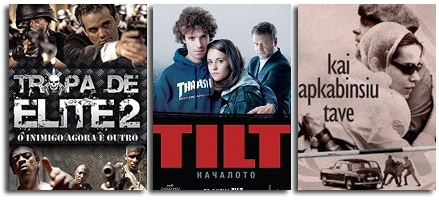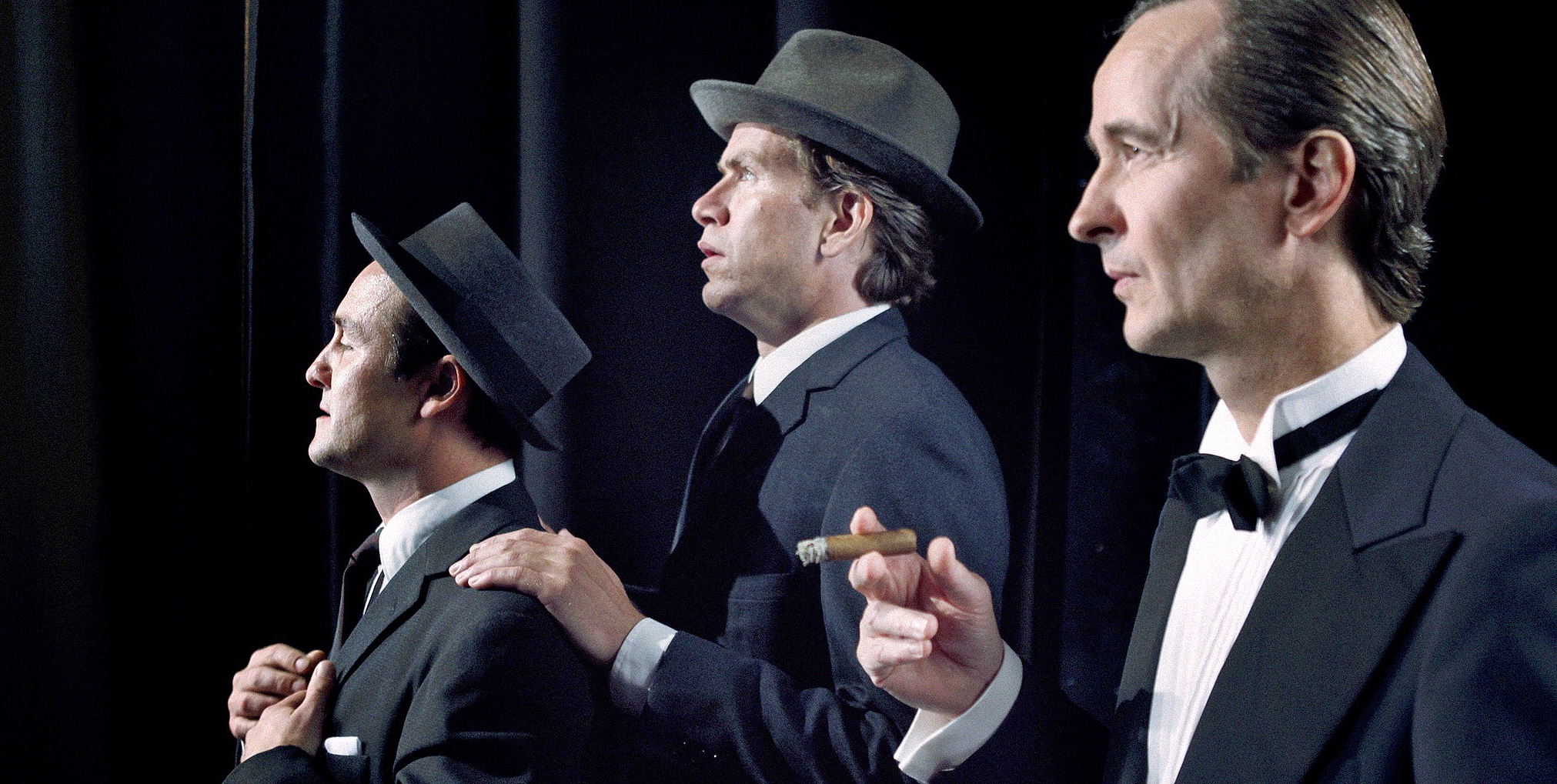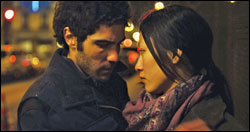Oscar's Foreign Race Heats Up With Russian Controversy
 Wednesday, September 21, 2011 at 11:08AM
Wednesday, September 21, 2011 at 11:08AM Blow the horn. The nifty annual charts for Oscar's Foreign Language Film competition are up. With 25 films announced (26 if you count Iran's confusing "did they or didn't they?" issues with their internationally acclaimed marital drama A Separation) we're nearing the halfway mark of the list which usually tops out somewhere around 65 films.
 Brazil, Bulgaria and Lithuania have announced
Brazil, Bulgaria and Lithuania have announced
Current predictions are for fun speculation only since we don't even have half the official list. Let's not get too crazy in thinking we know how this plays out; this category often surprises both with submission choices and finalists. (Especially with their recent Executive Committee switcheroo powers. That must be how Dogtooth made it last year!)
Albania to Italy the most recent additions are Brazil's Rio slums crime drama Elite Squad 2, Bulgaria's Tilt which seems a little rock and roll / adolescent for Oscar (here's the trailer) and Colombia's The Colors of the Mountain.
Italy to Vietnam one new addition is a father/daughter drama from Lithuania called Back in Your Arms which takes place in the 60s but the backstory is very World War II. I want to see this ... I mean, it even has dance numbers!
 RUSSIA has also announced...
RUSSIA has also announced...
When Nikita Mikhalov, the director and star of the very popular Russian Oscar winner Burnt by the Sun (1994) announced he was making the sequel some time ago I immediately predicted that a future nomination was sewn up. But beware of 'looks unbeatable on paper.' Burnt by The Sun 2: Citadel met with surprisingly rough reviews when it hit Cannes and was an expensive box office failure at home.
The controversy doesn't end there. Here's a quote from a recent Guardian article on this selection:
Vladimir Menshov, the chairman of the country's Oscars committee, has publicly called on Mikhalkov to withdraw his film. Apart from anything else, he said, there was something "inappropriate" about the veteran film-maker, who is a member of the committee, having put his own movie forward for consideration.
"This film, which came out in May, had an absolute critical drubbing ... it was never shown anywhere internationally," Menshov told Echo of Moscow radio on Tuesday. "And most importantly, it was a catastrophe at the box office."
 Burnt by the Sun (1994), Oscar WinnerOn the other hand if an entire committe is making the decision, why shouldn't one mamber who is a working filmmaker be able to submit their films as long as they don't have deciding power? It'll be interesting to see if Oscar's love for the original transfers. It did provide a memorable moment on the telecast with the director and his adorable daughter Nadezhda (both stars of the film). Or will the Academy give this sequel the cold shoulder that it's receiving elsewhere.
Burnt by the Sun (1994), Oscar WinnerOn the other hand if an entire committe is making the decision, why shouldn't one mamber who is a working filmmaker be able to submit their films as long as they don't have deciding power? It'll be interesting to see if Oscar's love for the original transfers. It did provide a memorable moment on the telecast with the director and his adorable daughter Nadezhda (both stars of the film). Or will the Academy give this sequel the cold shoulder that it's receiving elsewhere.
Have you ever seen Burnt by the Sun?
Are you glad to see the charts back?
 Oscars (11),
Oscars (11),  Russia,
Russia,  foreign films
foreign films 









